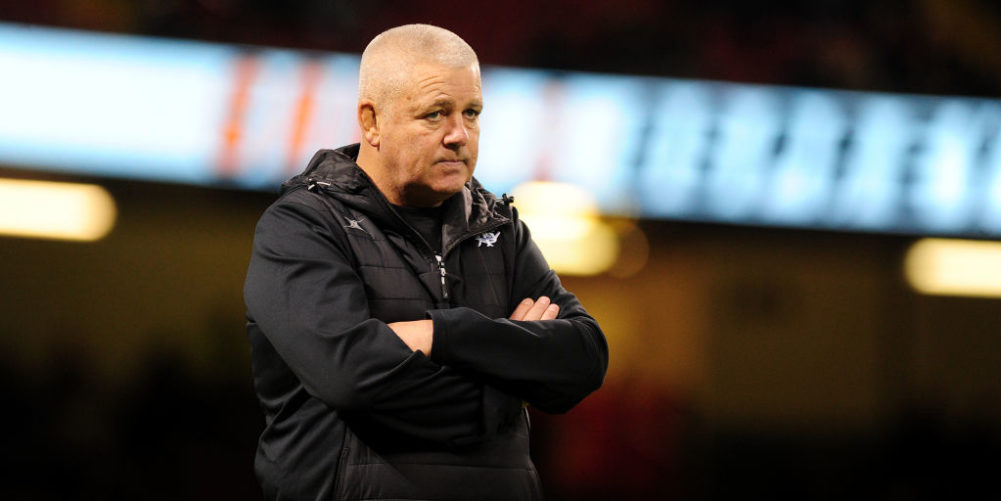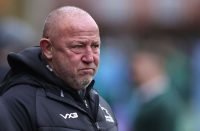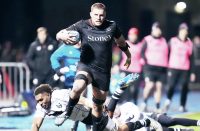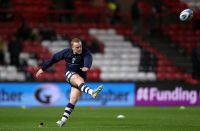IAN Foster, New Zealand’s newly appointed head coach, cannot break-dance like his Crusaders rival Scott Robertson, but there are many Kiwis who believe he could break the All Blacks.
The naysayers believe that aura of a near-invincibile black wall built by New Zealand during their double World Cup-winning era from 2011 through to the moment they were deposed by England in the seismic semi-final defeat in Japan last month, will crumble on Foster’s watch.
Foster’s appointment ahead of the younger, more charismatic Robinson, was a classic case of the All Blacks staying in-house, with Steve Hansen’s assistant head coach and selector at the 2015 and 2019 World Cups promoted to the top job, just as Hansen was when Graham Henry stepped down.
Given that he is a World Cup winner, albeit four years ago, the lack of public enthusiasm for Foster’s appointment seems curmudgeonly.
Most of it stems from unfavourable comparisons between his Super Rugby record and Robertson’s, because, prior to becoming part of the All Black inner sanctum in 2012, he won no titles in his eight-year stint as Waikato Chiefs coach.
By comparison, Robertson has won three Super Rugby titles in succession in the last three years after being promoted to head coach of the Crusaders.
However, there is no question that, irrespective of whether the New Zealand head coach role was handed to Foster or Robertson, the repair job following the 2019 World Cup will be difficult.
The first obstacle is that the defeat by England represents an important watershed in terms of leadership. While Hansen handing over to Foster is significant, Kieran Read’s departure as All Black captain eclipses it.
Read was a formidable presence during his four years as captain after succeeding Richie McCaw, and even though father time started to catch up with the No.8 after the 2017 Lions tour, there was always the sense that he was an unflinching standard-bearer around whom Hansen could renew his team.
However, while the handover from McCaw to Read was pretty seamless, Forster is faced with a conundrum over Sam Whitelock, who is the most obvious successor as captain following Read’s retirement.
The 31-year-old Whitelock has 117 caps and is rated as one of the great All Black locks. Furthermore, he has already cut his teeth as captain by taking over from Read at the Crusaders, and also on occasion for New Zealand.
The only impediment to the succession is that Whitelock has negotiated a one-season sabbatical to play club rugby in Japan for the Panasonic Wild Knights, and will therefore not be embedded in New Zealand domestic rugby when Foster starts his rebuild.
Some Kiwi commentators argue that Whitelock’s absence should rule him out of the reckoning, and Foster should turn instead to experienced players, such as Sam Cane and Beauden Barrett, who have committed themselves to representing New Zealand franchises in Super Rugby.
There are a number of faults-lines here, starting with the assumption that Whitelock, who will be 35 during the 2023 World Cup in France, will last the course.
There are also questions over the captaincy credentials of Cane and Beauden Barrett. Openside flanker Cane has the experience (68 Tests), but he does not have the authority or influence of a McCaw, or Read. This was highlighted when Hansen benched him in the semi-final against England, with Ardie Savea and Scott Barrett – a lock/blindside – picked to start on the flanks instead.
Beauden Barrett has precious little captaincy experience, and there is the added complication of whether the gifted playmaker’s move from fly-half to full-back is temporary or permanent.
The responsibility of being a new captain while not being sure what position you are playing could be more of a hindrance than a help.
Then there is the curious case of the other obvious candidate, Whitelock’s second row buddy, Brodie Retallick.
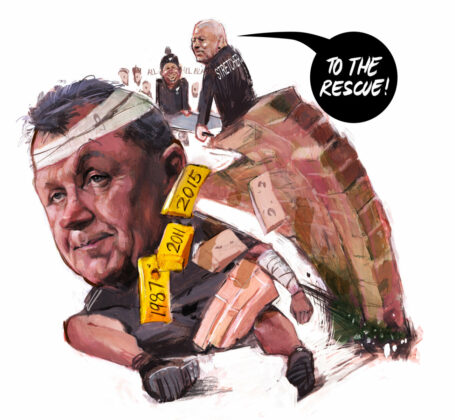
Foster cannot factor Retallick into the captaincy equation because he has been given a dispensation by New Zealand Rugby to spend the next two years playing club rugby in Japan, before returning to New Zealand two years prior to the 2023 World Cup.
You could be forgiven for thinking that the privilege of being given the All Black captaincy does not have quite the same allure at the end of 2019 that it did a few months ago.
By the time New Zealand play their first Test under Foster against Wales in Auckland in July, the picture will be clearer – and one of those keeping a weather eye on it will be Warren Gatland.
In his new role as Waikato Chiefs coach, Gatland has more than a passing interest in how his old team-mate, Foster, gets on.
Foster played at fly-half alongside Gatland in the Waikato team that beat the 1993 Lions, and while Gatland will be engaged in a sabbatical of his own as head coach of the 2021 Lions tour to South Africa, if his old mucker falters, his own dream of coaching the All Blacks could be within touching distance.
If Gatland succeeds in leading the Lions to a winning series over the Springbok world champions – having already succeeded in securing a drawn series in New Zealand in 2017 – his stock as a coach will never have been higher.
It means that if Foster struggles, and his two-year contract is terminated two years before the World Cup in France, then Gatland, rather than Robertson, could be the coach New Zealand turn to.
NICK CAIN

